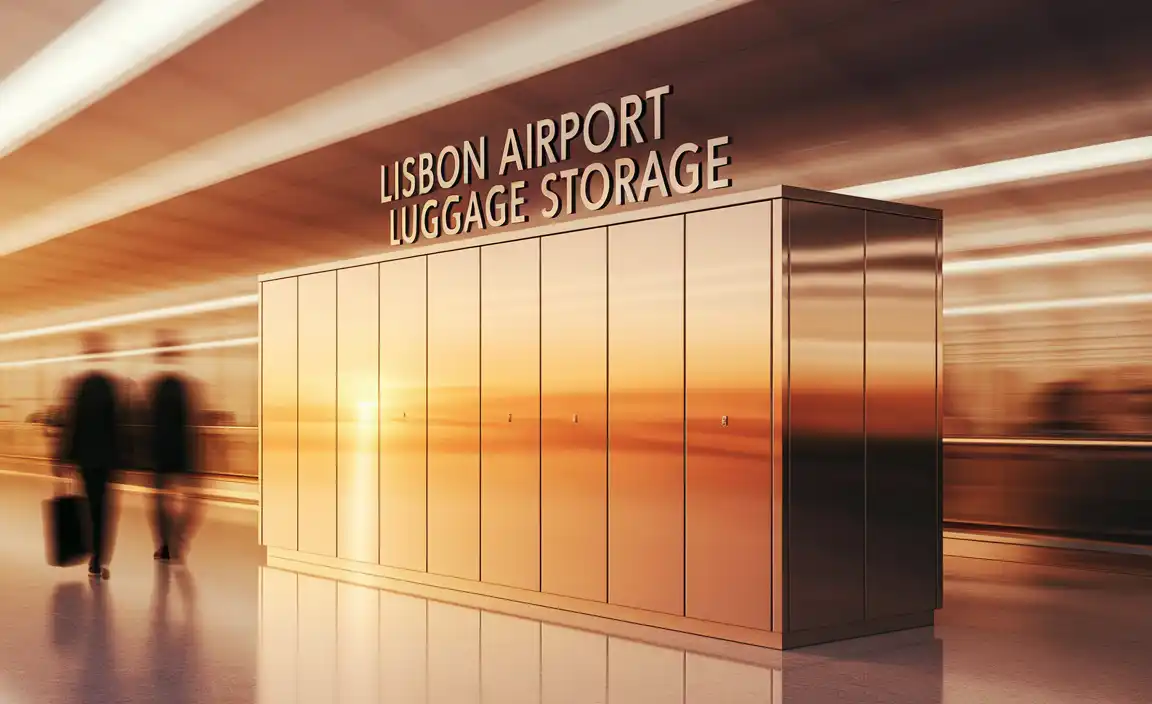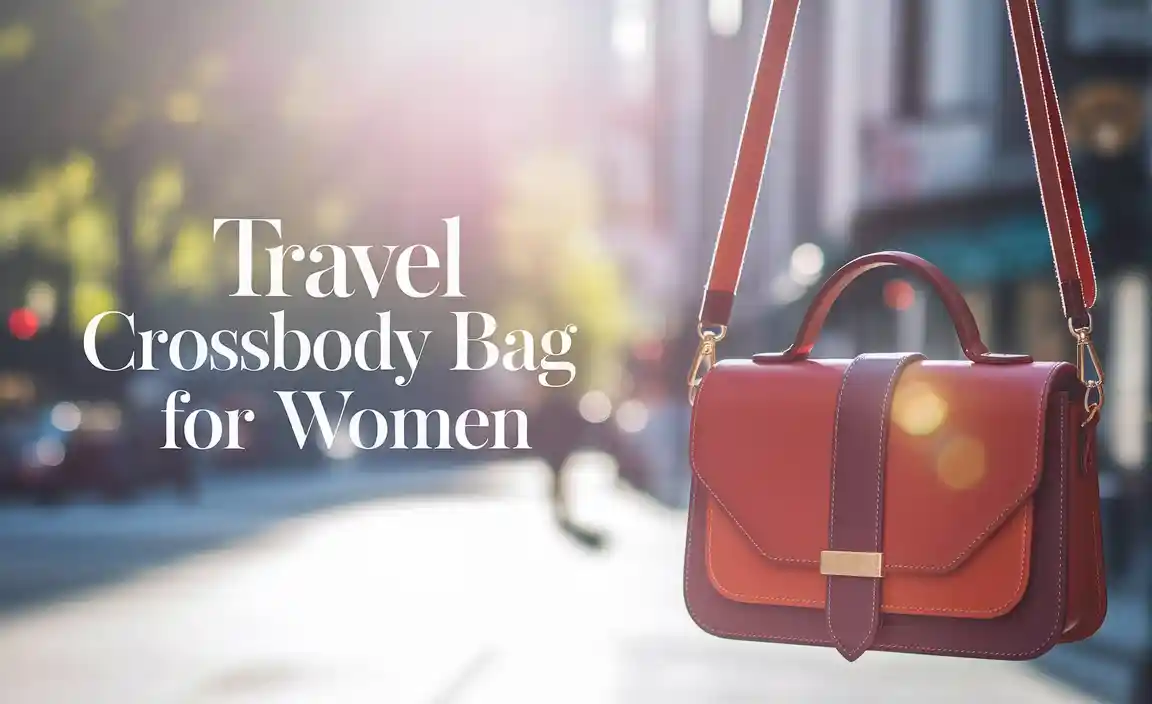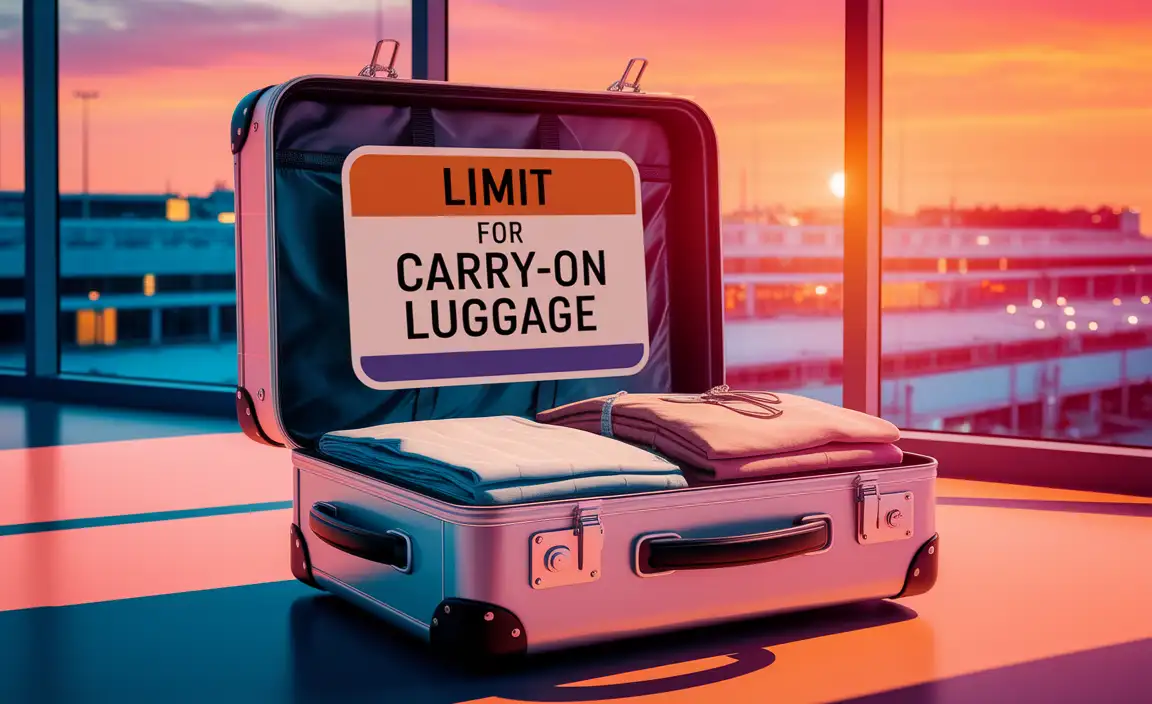Plan your Accra shoulder season trip for affordable travel, pleasant weather, and fewer crowds. This guide offers essential steps for a smooth and enjoyable experience in Ghana’s vibrant capital, covering packing, accommodations, and activities.
Planning a trip to Accra can feel like a major undertaking, especially when you’re aiming for the sweet spot between peak tourist seasons. Many travelers worry about unpredictable weather, higher costs, or feeling overwhelmed by too many people. But what if you could enjoy Accra’s incredible culture, delicious food, and warm spirit without the usual travel headaches? It’s absolutely possible! With a little smart planning, your Accra shoulder season adventure can be both budget-friendly and incredibly rewarding. Think sunshine, vibrant markets, and genuine encounters with locals. We’ll walk you through everything you need to know, step by step, to make your trip comfortable and stress-free. Get ready to discover the magic of Accra when it’s at its most charming!
Why Choose Accra’s Shoulder Season?
Accra, Ghana’s bustling capital, offers a unique blend of historical depth, vibrant street life, and beautiful coastal scenery. While the high season (roughly December to February) brings sunshine and a lively atmosphere, it also means higher prices and bigger crowds. The shoulder seasons, typically falling around March to May and September to November, present an enticing alternative for savvy travelers.
During these periods, you often experience:
More Affordable Prices: Flights and accommodation can be noticeably cheaper when demand is lower. This allows your travel budget to stretch further, giving you more opportunities to explore and indulge.
Pleasant Weather: While it’s a tropical climate, the shoulder seasons can offer a good balance. You can avoid the most intense heat and humidity of the dry peak season and the heaviest rains of the main wet season.
Fewer Tourists: Experience a more authentic side of Accra with less competition for popular attractions and a more relaxed pace overall. You’ll have more space to appreciate historical sites, enjoy restaurants, and interact with the local culture.
Lush & Green Scenery: The periods following or leading up to the main rains often mean Accra and its surroundings are beautifully green and vibrant.
This combination makes the shoulder season an ideal time for both first-time visitors and those looking for a more relaxed, immersive experience.
Your Essential Accra Shoulder Season Trip Plan: A Step-by-Step Guide
Embarking on your Accra adventure during the shoulder season requires a bit of thoughtful preparation. Here’s your comprehensive plan, broken down into manageable steps.
Step 1: Timing Your Visit – Understanding the Shoulder Seasons
Ghana’s climate is tropical, with distinct wet and dry seasons. The shoulder seasons are essentially the transition periods.
Pre-Rainy Season (March – May): This period generally sees increasing temperatures and humidity. While occasional light showers can occur, they are usually not continuous. It’s a great time for enjoying outdoor activities before the heavier rains of June and July. April and May can sometimes be the wettest months within this shoulder period.
Post-Rainy Season (September – November): Often considered the most pleasant shoulder period. The intense humidity and heat of the peak dry season begin to recede, and the heaviest rains have usually passed. You’ll find comfortable temperatures and a good chance of sunshine, with only sporadic rainfall.
Action: Check detailed weather forecasts closer to your travel dates, but generally, September to November is often preferred for its milder conditions.
Step 2: Booking Flights and Accommodation Wisely
Securing good deals on flights and stays is a hallmark of shoulder season travel.
Flight Booking Tips:
Book in Advance: Even in the shoulder season, booking flights 2-3 months ahead can secure better fares.
Be Flexible with Dates: If your travel dates are flexible by a few days, you might find significant savings.
Consider Airlines: Research different airlines that fly into Kotoka International Airport (ACC). Compare prices and check for any seasonal promotions.
Accommodation Options in Accra:
Accra offers a wide range of accommodations to suit different budgets and travel styles. During the shoulder season, you’ll find better value.
Hotels: From luxury international chains to boutique hotels, Accra has it all. Look for deals that might be exclusive to the shoulder season.
Guesthouses and Apartments: For a more local feel or extended stays, guesthouses and serviced apartments can be excellent options. They often provide more space and amenities like kitchenettes.
Budget-Friendly Stays: Hostels and simpler guesthouses are available for those on a tighter budget.
Table: Accommodation Types and Considerations for Shoulder Season
| Accommodation Type | Pros | Cons | Best For |
| :—————– | :————————————— | :———————————————– | :——————————————- |
| Luxury Hotels | High comfort, amenities, security, service | Higher cost, can feel less “local” | Travelers prioritizing comfort and amenities |
| Boutique Hotels| Unique character, good service, often central | Can vary in price and quality | Travelers seeking personalized experiences |
| Guesthouses | Homely feel, often affordable, local contact | Amenities can be more basic, less predictable | Budget-conscious travelers, longer stays |
| Apartments | Kitchen facilities, more space, privacy | May require self-catering, cleaning schedules vary | Families, groups, extended stays |
| Hostels | Very affordable, social atmosphere | Shared facilities, less privacy | Solo travelers, young backpackers |
Action: Start your flight and accommodation search as soon as your dates are firm. Read recent reviews to gauge current conditions and service quality.
Step 3: Packing Essentials for Comfort and Convenience
Packing smart is crucial for any trip, and Accra’s shoulder season has specific considerations. Comfort is key, especially if you’re managing travel with children or require personal care items like adult or child diapers.
Clothing:
Lightweight, Breathable Fabrics: Cotton, linen, and moisture-wicking synthetics are best for Accra’s warm climate.
Modest Attire: While Accra is a cosmopolitan city, it’s respectful to dress modestly, especially when visiting religious sites or more traditional areas. Pack long skirts, dresses, trousers, and tops that cover your shoulders and knees.
Rain Protection: A lightweight, packable raincoat or umbrella is advisable, particularly for the pre-rainy season.
Swimwear: If your accommodation has a pool or you plan to visit beaches.
Comfortable Walking Shoes: You’ll be doing a lot of exploring on foot.
A Light Sweater or Shawl: For cooler evenings or air-conditioned environments.
Health and Personal Care:
Insect Repellent: Essential for preventing mosquito bites, especially at dawn and dusk. Look for products containing DEET or Picaridin.
Sunscreen: High SPF sunscreen is a must to protect your skin.
Hand Sanitizer: Always good to have on hand.
Basic First-Aid Kit: Include band-aids, antiseptic wipes, pain relievers, and any personal medications.
Travel-Sized Toiletries: Consider bringing your preferred brands.
Diapers (Adult & Child): For peace of mind and consistent comfort, it’s always best to pack your own supply of high-quality adult diapers or child diapers. Brands designed for overnight absorbency and discreet wear can significantly enhance comfort, especially during long travel days or when access to specific brands might be limited. This ensures you or your child remain dry and comfortable, allowing for more enjoyable exploration.
Travel Gear:
Power Adapter and Voltage Converter: Ghana uses Type D and Type G plugs (230V, 50Hz).
Portable Power Bank: Keep your devices charged on the go.
Reusable Water Bottle: Stay hydrated and reduce plastic waste.
Scarf or Sarong: Versatile for covering up, sun protection, or as a beach wrap.
Daypack: For carrying your essentials during daily excursions.
Action: Lay out your clothing and gear, checking against this list. Pack your chosen personal care items, including any necessary diapers, in a convenient travel bag.
Step 4: Planning Your Itinerary – Must-See Attractions
Accra offers a rich tapestry of experiences. During the shoulder season, you can enjoy these with more ease.
Historical & Cultural Sites:
Independence Square & Independence Arch: A monument to Ghana’s independence.
Kwame Nkrumah Mausoleum: The final resting place of Ghana’s first president.
National Museum of Ghana: (Check for current re-opening status, as it has undergone renovations).
W.E.B. Du Bois Centre: A historical landmark dedicated to the American civil rights activist.
Osu Castle (Former seat of government): Offers a glimpse into Ghana’s colonial past. (Visitor access may be limited, check ahead).
Markets & Shopping:
Makola Market: A vibrant, chaotic, and iconic marketplace offering everything from textiles and spices to everyday goods. A true sensory experience!
Accra Art Centre: A good place to find souvenirs, artwork, carvings, and textiles. Bargaining is expected.
Agbogbloshie Market: (For the adventurous) The world’s second-largest e-waste dump, offering a stark visual of technological obsolescence and informal recycling. A unique, though challenging, experience.
Nature & Relaxation:
Labadi Beach: A popular spot for locals and tourists to relax, enjoy food, and listen to music. Can be livelier on weekends.
Teshie-Nungua Beach: Known for fishing communities and artisanal activities.
Kakum National Park (Day trip): Famous for its canopy walk over the rainforest. This is a popular day trip from Accra.
Aburi Botanical Gardens (Day trip): A refreshing escape into lush greenery and tropical flora.
Culinary Experiences:
Local Restaurants (“Chop Bars”): For authentic Ghanaian dishes like jollof rice, fufu, banku, and grilled tilapia.
Street Food: Sample delicious snacks like fried plantains (kelewele) and grilled corn.
Seafood: Accra boasts fresh seafood, especially along the coast.
Table: Sample Itinerary Outline (7 Days)
| Day | Morning | Afternoon | Evening |
| :– | :—————————————— | :——————————————— | :——————————————— |
| 1 | Arrive at ACC, transfer to accommodation. | Settle in; light exploration of surroundings. | Dinner at a local restaurant. |
| 2 | Kwame Nkrumah Mausoleum & Independence Sq. | National Museum (if open) or W.E.B. Du Bois Centre. | Explore Osu Oxford Street for shops/eateries. |
| 3 | Makola Market exploration (morning). | Accra Art Centre for souvenirs. | Relax at Labadi Beach. |
| 4 | Day trip to Kakum National Park (canopy walk). | Return to Accra. | Relaxed dinner. |
| 5 | Visit Aburi Botanical Gardens. | Explore Jamestown, fishing harbor. | Attend a live music performance if available. |
| 6 | Relax, revisit favorite spots, or explore local neighborhoods. | Prepare for departure; last-minute shopping. | Farewell dinner. |
| 7 | Depart from Kotoka International Airport. | | |
Action: Draft a flexible itinerary. Prioritize what interests you most, and keep in mind travel times between locations.
Step 5: Navigating Transportation in Accra
Getting around Accra is part of the adventure! Understanding your options will make your travels smoother.
Taxis: Plentiful and relatively affordable. It’s advisable to agree on a fare before starting your journey, or ensure the meter is used if available. Many taxis are not metered.
Ride-Sharing Apps: Apps like Uber and Bolt are very popular and offer convenient, often pre-priced rides. This is a user-friendly option.
Tro-Tros: These are local minibuses that form the backbone of public transport. They are incredibly cheap but can be crowded and follow specific routes. Not always the most comfortable, especially with luggage or for those unfamiliar with the system.
Hiring a Car and Driver: For maximum comfort and flexibility, especially for day trips or if you prefer not to navigate yourself, hiring a car with a driver is an excellent option. This can be arranged through your hotel or a local tour operator.
Walking: Within certain neighborhoods like Osu or Jamestown, walking is a great way to explore.
Action: Download ride-sharing apps before you arrive. Research reputable car hire services if that’s your preferred method.
Step 6: Staying Healthy and Safe
Your well-being is paramount. Accra is generally safe, but like any large city, it’s wise to take precautions.
Drink Bottled Water: Always opt for sealed bottled water. Avoid ice in drinks from street vendors.
Eat Safely: While street food is enticing, choose vendors who appear clean and popular with locals. Stick to well-cooked foods. If you have concerns about food safety or are traveling with young children, consider restaurants or preparing meals if your accommodation has facilities.
Vaccinations and Health Advice: Consult your doctor or a travel clinic well in advance of your trip regarding recommended vaccinations and health precautions for Ghana. The Centers for Disease Control and Prevention (CDC) provides excellent country-specific travel health information. CDC Ghana Travel Information
Personal Security: Be aware of your surroundings, especially in crowded areas. Avoid displaying valuable items openly. Keep your belongings secure.
Diapering Needs for Adults and Children: If you rely on specific brands or types of personal hygiene products, packing enough for your trip is highly recommended. This ensures continuity of care and comfort, preventing potential discomfort or skin irritation that can arise from switching products unexpectedly. For parents traveling with infants, having reliable child diapers readily available removes a significant stressor, allowing more focus on enjoying the experience.
Action: Schedule a doctor’s visit for any necessary health consultations. Familiarize yourself with local safety tips.
Step 7: Embracing Local Culture and Etiquette
Respectful engagement will significantly enrich your experience.
Greetings: A warm greeting goes a long way. “Akwaaba” means “welcome” in Twi, one of Ghana’s many languages.
Bargaining: It’s common and expected in markets, but do so with a smile and good humor.
Photography: Always ask permission before taking photos of people, especially children.
Tipping: While not always mandatory, tipping for good service in restaurants and hotels is appreciated. Around 10% is customary for good service.
* Respect for Elders: Showing deference to older individuals is a core value.
Action: Learn a few basic greetings in Twi or Ga. Be mindful and respectful in your interactions with locals.
Making the Most of Your Accra Experience
Your Accra shoulder season trip plan is now well underway! Remember, the key to a fantastic trip is a blend of preparation and spontaneity. Embrace the unexpected, be open to new experiences, and allow yourself to be captivated by the warmth of Ghanaian hospitality. Whether you’re navigating bustling markets, exploring historical sites, or simply enjoying a sunset on the coast, this season offers a delightful balance of comfort and authenticity.
Enjoy the vibrant colors, the rich flavors, and the rhythms of life in this incredible West African city. Your well-planned journey will leave you with lasting memories and a deeper appreciation for Ghana.
Frequently Asked Questions about Accra Shoulder Season Trips
Q1: Is Accra safe to visit during the shoulder season?
A1: Yes, Accra is generally considered safe for tourists during the shoulder season. Like any large city, it’s important to be aware of your surroundings, especially in crowded areas, and take standard precautions against petty theft. Researching common safety tips for Accra will further enhance your peace of mind.
Q2: What is the weather like in Accra during the shoulder seasons?
A2: The shoulder seasons (March-May and September-November) offer a transitionary climate. You can expect warm temperatures, but potentially less intense heat and humidity than the peak dry season. Occasional rainfall is possible, especially in the pre-rainy season (March-May), but these are often short-lived showers. September to November is often favored for its milder conditions.
Q3: Are there fewer crowds in Accra during the shoulder seasons?
A3: Absolutely. The shoulder seasons are characterized by fewer tourists compared to the peak season (December-February). This means shorter queues at attractions, more availability for accommodation and tours, and a more relaxed atmosphere for exploring the city and interacting with locals.
Q4: How can I travel affordably in Accra during the shoulder season?
A4: Shoulder season travel is inherently more affordable. You can save on flights and accommodation by booking in advance. Utilizing local transport like ‘tro-tros’ (minibuses) is very budget-friendly for getting around the city. Eating at local chop bars instead of high-end restaurants also significantly reduces meal costs.
Q5: What type of clothing is best to pack for an Accra shoulder season trip?
A5: Pack lightweight, breathable clothing made from natural fabrics like cotton and linen. Include modest options that cover your shoulders and knees for cultural respect. A light rain jacket or umbrella is advisable due to potential intermittent showers. Comfortable walking shoes are essential.
Q6: What personal items, like diapers, should I consider packing?
A6: For comfort and consistency, it’s highly recommended to pack an adequate supply of personal hygiene items such as adult diapers or child diapers. While some may be available locally, bringing your preferred brands ensures you have reliable products that fit well and provide the absorbency








